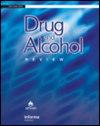Protecting children from tobacco products in retail environments: A review of Australian tobacco control laws
Abstract
Issues
Tobacco retailing remains highly prevalent in Australia and so represents a potential source of exposure to tobacco marketing for children, despite national laws that restrict tobacco advertising, promotion and sponsorship. This study sought to answer the question of how comprehensively the current Australian regulatory framework protects children from potential exposure to tobacco marketing in retail settings.
Approach
We reviewed and summarised Australian tobacco control laws (federal, state and territory) for provisions related to protecting children from supply or advertising/promotion of tobacco products in retail settings. We analysed the laws for differences between jurisdictions and considered how comprehensively they protect children from exposure to tobacco product marketing in retail environments.
Key Findings
We found several gaps in the laws that leave children exposed to tobacco product marketing in retail environments. For example, some jurisdictions allow children to sell tobacco products and some do not undertake controlled purchase operations to monitor compliance. No jurisdiction currently restricts the location or number of tobacco retailers, or the types of retailers who can sell tobacco (including toy stores).
Implications
There are opportunities to strengthen tobacco retailing regulations in Australia to better distinguish tobacco from everyday consumer products and to protect children from tobacco marketing in retail environments.
Conclusions
Even in countries with strong tobacco advertising and promotion restrictions, such as Australia, weaknesses in tobacco laws leave children exposed to tobacco product retailing in ways that normalises tobacco product sales and use. Tobacco retailing laws should be strengthened to denormalise commercial tobacco products.

 求助内容:
求助内容: 应助结果提醒方式:
应助结果提醒方式:


